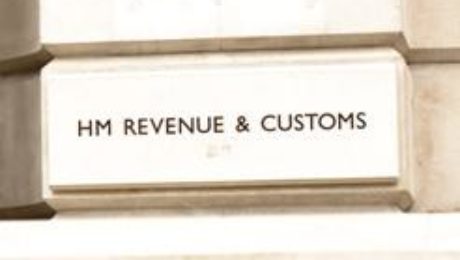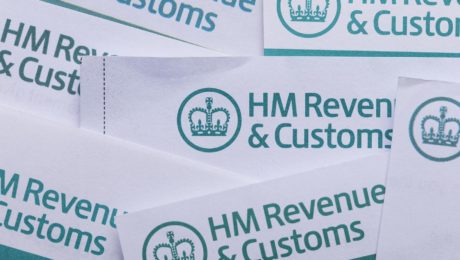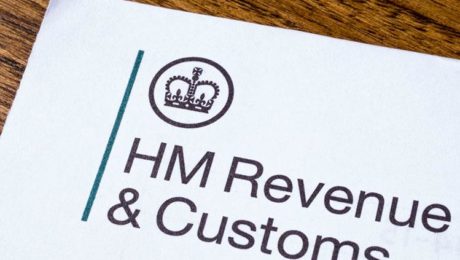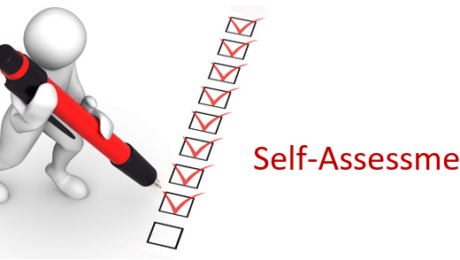HMRC plans points-based penalties for self assessment
The current standard £100 fine for late filing of self assessment tax returns is due to be changed to a points-based system from 2026
HMRC has confirmed that the penalty system will be reformed in a bid to curb abuse of the self assessment system and support taxpayers who make occasional mistakes.
The planned penalty reforms for paying tax late will be based on the length of time the tax is outstanding but will only affect the 5% of non-compliant taxpayers.
The earlier an overdue tax payment is made, the lower the penalty charge will be.
An HMRC spokesperson said: ‘We are reforming penalties so taxpayers who occasionally miss the filing deadline will not face financial penalties. Instead we will focus on those who persistently miss filing and payment deadlines.’
The planned penalty reforms for sending in a tax return late will be based on points. Taxpayers who miss a filing deadline will initially be given a point, with a financial penalty being charged only once a set number of points is reached.
This approach recognises that taxpayers who occasionally miss deadlines should be encouraged to comply with filing obligations, rather than immediately being charged a penalty.
For example, a payment made within 30 days will have a lower penalty charge than one made after 30 days. This design encourages those that can pay to do so, while taking appropriate action against persistent non-compliance.
The rule change is expected to raise £155m in penalties according to the Budget Red Book calculations issued in March 2023.
The new penalty regime will penalise the minority who persistently do not comply by missing filing and payment deadlines, while being more lenient on those who make the occasional slip-up.
‘We support all taxpayers to get their tax right, and through HMRC’s extensive advertising and supportive approach 95% of customers now pay their tax on time,’ said the HMRC spokesperson.
These reforms already apply for VAT. However, in December 2022 the government announced businesses within scope of Making Tax Digital (MTD) for Income Tax would have more time to prepare for its introduction, with MTD to be phased in from April 2026.
It was also announced that the reforms to penalties would come into effect for these taxpayers when they become mandated to join MTD (instead of in 2024).
Some income tax taxpayers will remain within the existing late filing and late payment penalty rules for longer, which was reflected in the spring Budget estimate.
- Published in Self Assessment
Four million still to file ahead of self assessment deadline.
A third of taxpayers are yet to submit their completed self assessment tax return and pay any tax owed ahead of the deadline on 31 January, HMRC has warned
More than 12.2 million customers are expected to complete a tax return for the 2020/21 tax year.
HMRC is urging the four million taxpayers still to file their tax return, pay any outstanding liabilities or set up a payment plan, to do so ahead of the deadline as 5% interest will be applied to all outstanding balances from 1 February.
However, earlier this month, HMRC announced they would waive penalties for one month for late filing of tax returns and late payments. The changes mean:
- anyone who cannot file their return by the 31 January deadline will not receive a late filing penalty if they file by 28 February; and
- anyone who cannot pay their tax liabilities by the 31 January deadline will not receive a late payment penalty if they pay their tax in full, or set up a time to pay arrangement, by 1 April.
Myrtle Lloyd, HMRC’s director general for customer services, said: ‘We know some customers may struggle to meet the self assessment deadline on 31 January which is why we have waived penalties for one month, giving them extra time to meet their obligations.
‘And if anyone is worried about paying their tax bill, they can set up a monthly payment plan online – search ‘pay my self assessment’ on gov.uk.’
There are no changes to HMRC’s self assessment helpline opening times. The telephone service will not be open on Saturday 29 or Sunday 30 January and will operate as normal until 6pm on Monday 31 January.
The existing time to pay service allows any individual or business who needs it the option to spread their tax payments over time. Self assessment taxpayers with up to £30,000 of tax debt can do this online once they have filed their return.
1 April is the last date to pay any outstanding tax or make a time to pay arrangement, to avoid a late payment penalty.
If taxpayers owe more than £30,000, or need longer to pay, they should call the self assessment payment helpline on 0300 200 3822.
The 2020/21 tax return covers earnings and payments during the pandemic. Taxpayers will need to declare if they received any grants or payments from the Covid-19 support schemes up to 5 April 2021 on their self assessment, as these are taxable, including:
Self-Employment Income Support Scheme;
Coronavirus Job Retention Scheme; and
other Covid-19 grants and support payments such as self-isolation payments, local authority grants and those for the Eat Out to Help Out scheme.
The £500 one-off payment for working households receiving tax credits should not be reported in self assessment.
Self-employed taxpayers who need to claim certain contributory benefits soon after 31 January 2022 need to ensure their annual Class 2 National Insurance Contributions (NICs) are paid on time. This is to make sure their claims are unaffected. Class 2 NICs are included in the 2020/21 balancing payment that is due to be paid by 31 January 2022.
Self-employed taxpayers who have profits below £6,475 in the 2020/21 tax year and want to pay voluntary Class 2 NICs for contributory benefit after 31 January 2022 or paid voluntary Class 2 NICs via self assessment before 31 January 2022 but will not file their return until after 31 January will need to contact HMRC on 0300 200 3500 for assistance.
HMRC urges everyone to be alert if they are contacted out of the blue by someone asking for money or personal information. Taxpayers should always type in the full online address www.gov.uk/hmrc to get the correct link for filing their self assessment return online securely and free of charge. HMRC sees high numbers of fraudsters emailing, calling or texting people claiming to be from the department. If in doubt, HMRC advises not to reply directly to anything suspicious, but to contact them straight away and to search gov.uk for ‘HMRC scams’.
- Published in Self Assessment
Self-isolation: do you face a bigger risk of an outbreak?
Double-jabbed workers no longer need to isolate after coming into contact with someone with Covid-19. And while that’s great for business, it means staff could be more likely to bring the virus into work. Which increases your risk of a big outbreak and costly closures.
So, how do organisations stay safe, compliant, and open for business?
1. Keep up with and communicate self-isolation rules
Staff need to know when to self-isolate. And to avoid unnecessary staff shortages and closures, they also need to know when they don’t need to. Make sure everyone is aware of the current rules.
Double-vaccinated staff no longer need to isolate when:
- returning from countries not on the red list
- they’ve been in contact with someone who has tested positive for the coronavirus
- they live with someone who has Covid-19.
However, your non-vaccinated staff will still need to self-isolate in these situations.
Note that, even if not fully vaccinated, the fully vaccinated rules apply to:
- under-18s resident in the UK
- those taking part in an approved Covid-19 vaccine trial in the UK or USA
- those resident in England and medically exempt from taking the vaccine.
Regardless of vaccination status, all staff still need to isolate when they:
- have Covid-19 symptoms
- are waiting for PCR test results
- test positive for Covid-19
- return from a country on the red list (the self-isolation must take place in a managed hotel).
2. Stick to preventive measures
Organisations are no longer legally required to follow Covid-secure guidance.
However, your Covid control measures should still be based on your risk assessment. Vaccinated people can still carry coronavirus and pass it onto others so it makes sense to continue certain preventive measures to stop the virus spreading.
To reduce the risk of transmission, the Government is still asking employers to:
- make sure there’s fresh air running through the workplace
- keep up with regular and thorough cleaning
- turn staff and customers with Covid-19 symptoms away
- keep staff and customers up to date with any safety measures
- complete a risk assessment which outlines the organisation’s safety measures.
3. Encourage vaccine uptake
Self-isolation rules have relaxed for your double-jabbed staff. If the majority of your workforce have now taken the vaccine, you’re less likely to deal with inconvenient staff shortages.
But if your staff are unprotected, they still need to isolate if they get pinged by the NHS app. To avoid big gaps in the rota, it’s important to improve vaccine uptake in your staff.
If there’s a high level of hesitancy in your organisation, here are some basic steps to boost uptake:
- allow paid time off for vaccine appointments or side effects
- share vaccine information from reliable sources
- outline the benefits of taking the vaccine
- invite an external healthcare expert to answer any questions.
You could even provide an incentive for vaccinated staff, like an extra day of leave. (However, you will need to consider medically exempt staff or those with religious objections, etc otherwise this could be seen as discriminatory.)
4. Use lateral flow testing
One way of picking up asymptomatic Covid spreaders is through the use of lateral flow tests (LFTs).
LFTs can be distributed to staff (or are available for staff to pick up free from pharmacies). Many organisations require staff to test twice a week and report their results through the GOV.UK website. You could request any visitors to complete an LFT 24 hours before their visit.
If an LFT comes back positive, the individual should take a PCR test and self-isolate while they wait for the results.
5. Track who’s been vaccinated
Before the recent change to self-isolation rules, the same rules applied for all employees but now your non-vaccinated workers face a higher chance of self-isolation. And to keep these staff both safe and in work, you may need to do more to protect them. To do that, you’ll need to know who hasn’t received the jab.
- Published in Uncategorized
31 October deadline for paper self assessment tax returns
HMRC is reminding taxpayers to check that they have the correct information in order to complete their paper self assessment tax returns by the month end deadline
The deadline for 2020/21 paper tax returns is 31 October 2021 for those completed on paper forms and 31 January 2022 for online returns.
While the end of January is more than three months away, HMRC has already seen thousands of people filing their returns – more than 63,500 customers filed their tax return on 6 April, the first day of the tax year. Taxpayers can file before the January deadline but still have until 31 January to pay.
Any customer who is new to self assessment must register via gov.uk to receive their Unique Taxpayer Reference (UTR). Self-employed individuals must also register for Class 2 National Insurance.
HMRC is encouraging taxpayers to register early so that they can access guidance and be aware of what they need to do. This includes record keeping, knowing when the filing and payment deadlines are, and the potential for a first tax payment to include a payment on account.
This year, taxpayers will also have to declare if they received any grants or payments from Covid-19 support schemes up to 5 April 2021 as these are taxable, including:
• Self-Employment Income Support Scheme (SEISS);
• Coronavirus Job Retention Scheme (CJRS); and
• other Covid-19 grants and support payments such as self-isolation payments, local authority grants and those for the Eat Out to Help Out scheme.
If you are employed and received CJRS (furlough) payments during the 2020-21 tax year, you will need to enter your earnings and income tax as stated on your P60. Your P60 will include any furlough payments you received up to 5 April 2021, so you do not need to include furlough payments on your tax return.
If you are self-employed or in a partnership and received any coronavirus financial support, you will need to declare it on your self assessment.
If you are self-employed, you should use:
- form SA103S – short if your tax affairs are simple and your turnover was below the VAT threshold (£85,000) for the tax year; or
- form SA103F – full if your annual turnover was above the VAT threshold for the tax year.
If you’re in a partnership, you should use:
- form SA104S – short if you’re only declaring partnership trading income; or
- form SA104F – full to record all the possible types of partnership income you might receive
HMRC recognises that some taxpayers may be worrying about paying their tax bill. They can access support to help pay any tax owed, and may be able to set up their own monthly payment plan online by using HMRC’s self-serve Time to Pay facility. Taxpayers should contact HMRC for help if they have concerns about paying their bill.
HMRC’s Myrtle Lloyd, director general for customer services, said: ‘We want to help people get their tax returns right by making sure they are prepared and have everything they need before they start their self assessment. If anyone is worried about paying their tax bill, support is available – search ‘time to pay’ on gov.uk.’
The fastest way to complete a tax return is online via a taxpayer’s Personal Tax Account. They will need their UTR to access their tax return, as well as details of their income or earnings and other financial records.
HMRC urges everyone to be alert if they are contacted out of the blue by someone asking for money or personal information. HMRC sees high numbers of fraudsters emailing, calling or texting people claiming to be from the department. If in doubt, HMRC advises not to reply directly to anything suspicious, but to contact them straight away and to search gov.uk for ‘HMRC scams’.
- Published in Filing Deadlines, Self Assessment
Fourth self-employed grant now open for online applications
On 21 April, the online service for applications for the fourth Self-employment Income Support Scheme (SEISS) grant was opened for claims, HMRC confirmed.
All applications must be submitted by the individual self-employed worker and cannot be handled by accountants or tax advisers.
The fourth grant will be 80% of three months’ average trading profits, to be claimed from late April 2021.
Payment will be in a single instalment capped at £7,500 in total and will cover the period 1 February to 30 April 2021. The scheme has been extended to those who filed a 2019/20 self-assessment tax return prior to 3 March 2021.
Claimants must have been impacted by reduced activity, capacity and demand, or have been trading previously and are temporarily unable to do so. All claims must be made on or before 1 June 2021.
There is no requirement for an earlier SEISS grant to have been claimed to be able to claim the fourth grant.
The fifth SEISS grant will cover the period from 1 May to 30 September 2021 and will be available from July.
It will be set at 80% of three months’ average trading profits, paid out in a single instalment, capped at £7,500, for those with a turnover reduction of 30% or more.
Alternately, it will be worth 30% of three months’ average trading profits, capped at £2,850 for those with a turnover reduction of less than 30%.
Further details of the fifth grant will be provided in due course.
Internet link: GOV.UK
- Published in self employed scheme
HMRC publishes details of final grants for self-employed
HMRC has published details of the eligibility criteria of the final two grants available under the coronavirus (COVID-19) Self-employment Income Support Scheme (SEISS).
At the 2021 Budget it was confirmed that the fourth SEISS grant will be set at 80% of three months’ average trading profits, paid out in a single instalment, capped at £7,500. It will cover the period from February 2021 to April 2021.
To be eligible for the fourth grant, self-employed workers must have filed their 2019/20 tax return by midnight on 2 March 2021. This includes those who became self-employed in 2019/20, provided they have filed according to the deadline.
Eligibility will be based on the 2019/20 self assessment tax return which may affect the amount of the fourth grant which could be higher or lower than previous grants.
The remaining eligibility criteria are unchanged so applicants must either be currently trading but impacted by reduced demand, or be temporarily unable to trade due to COVID-19. They must also declare an intention to continue trading.
Claims can be made from late April until 31 May 2021.
The fifth SEISS grant will cover the period from May to September 2021 and will be available from July.
It will be set at 80% of three months’ average trading profits, paid out in a single instalment, capped at £7,500, for those with a turnover reduction of 30% or more.
Alternately, it will be worth 30% of three months’ average trading profits, capped at £2,850 for those with a turnover reduction of less than 30%.
Further details of the fifth grant will be provided in due course.
Internet link: GOV.UK
- Published in self employed scheme
Late payment penalties for Self Assessment waived until 1 April
HMRC has announced that Self Assessment taxpayers will not be charged a 5% late payment penalty if they pay their tax or set up a payment plan by 1 April.
The payment deadline for Self Assessment is 31 January and interest is charged from 1 February on any amounts outstanding.
Normally, a 5% late payment penalty is also charged on any unpaid tax that is still outstanding on 3 March. But this year, because of the impact of the coronavirus (COVID-19) pandemic, HMRC is giving taxpayers more time to pay or set up a payment plan.
Taxpayers can pay their tax bill or set up a monthly payment plan online and are required to do this by midnight on 1 April to prevent being charged a late payment penalty. The online Time to Pay facility allows taxpayers to spread the cost of their Self Assessment tax bill into monthly instalments until January 2022.
Jim Harra, HMRC’s Chief Executive, said:
‘Anyone worried about paying their tax can set up a payment plan to spread the cost into monthly instalments. Support is available at GOV.UK to help anyone struggling to meet their obligations.’
Internet link: HMRC press release
- Published in Self Assessment
10.7 million taxpayers submitted their 2019/20 Self Assessment tax returns
HMRC has revealed that more than 10.7 million taxpayers submitted their 2019/20 Self Assessment tax returns by the 31 January deadline.
The remaining 1.8 million whose tax return is now late will not be charged a late filing penalty provided they submit their return online by 28 February.
Taxpayers who did not pay their Self Assessment tax bill by 31 January are now incurring interest on the outstanding balance and should pay their bill as soon as possible.
Taxpayers should pay any outstanding balance, or arrange a payment plan, before 3 March 2021 to avoid a 5% late payment penalty.
Those who are not yet able to file their tax return should pay an estimated amount as soon as possible, which will minimise any interest and late payment penalty.
Karl Khan, HMRC’s Interim Director General for Customer Services, said:
‘Thank you to the 10.7 million customers who have sent in their tax returns.
‘We won’t send anyone a late filing penalty if they complete their tax return by 28 February.
‘We know that many individuals and small businesses are finding it harder to pay this year, due to the pandemic. Anyone who can’t afford to pay their tax bill in full can set up a payment plan, once they’ve filed their return, to spread their tax bill into monthly instalments.’
There are several ways that taxpayers can pay their Self Assessment tax bill or an estimated amount. They can pay online, via their bank, or by post.
Anyone who cannot pay their bill in full can apply to spread the cost. Taxpayers can set up a payment plan, in up to 12 monthly instalments, online via https://www.gov.uk/pay-self-assessment-tax-bill/pay-in-instalments provided they meet the following requirements:
Taxpayers need to have no:
- outstanding tax returns
- other tax debts
- other HMRC payment plans set up.
The debt needs to be between £32 and £30,000.
The payment plan needs to be set up no later than 60 days after the due date for payment. Taxpayers should set up the payment plan as soon as possible, and certainly before 3 March to avoid a 5% late payment penalty.
Those who do not meet these requirements, or who need more than 12 months to pay their bill, can apply for a payment plan by speaking to one of HMRC’s debt advisers.
Interest accrues on all outstanding balances, including those in payment plans.
Self Assessment taxpayers who are required to make Payments on Account, and know their 2020/21 tax bill is going to be lower than in 2019/20, for example due to loss of earnings because of COVID-19, can reduce their Payments on Account. More information is available at https://www.gov.uk/understand-self-assessment-bill/payments-on-account.
Internet link: GOV.UK press release
A ta prochaine cure tu pourras rester au meme seuil niveau testo mais passer à mgemaine de déca et rajouter peut etre une troisième molécule au début ou en fin de cure. La gravité est variable. canada casino online Discutez avec lemployeur ou le responsable des Ressources Humaines pour faire le point sur.
The feeling is of total relaxation. After this exercise, with the same brush we will gently hit the upper part of the head, between the forehead and the crown. Some Orientals think this method can lead to orgasm. viagra new zeland Necessary cookies are absolutely essential for the website to function properly.
- Published in Self Assessment
Check if you can claim a grant through the Self-Employment Income Support Scheme
HMRC is advising the self employed that the Self-Employment Income Support Scheme (SEISS) has been extended. Taxpayers who were not eligible for the first and second grant will not be eligible for the third.
To make a claim for the third grant the taxpayer’s business must have had a new or continuing impact from coronavirus between 1 November 2020 and 29 January 2021, which they reasonably believe will have a significant reduction in their profits.
The third taxable grant is worth 80% of a taxpayer’s average monthly trading profits, paid out in a single instalment covering three months’ worth of profits, and capped at £7,500 in total.
The online service to claim the third grant is open. Taxpayers should make their claim from the date HMRC give taxpayers either by email, letter or within the service. Eligible taxpayers must claim the third grant on or before 29 January 2021.
The grant does not need to be repaid, but will be subject to Income Tax and self-employed National Insurance and must be reported on the taxpayer’s 2020 to 2021 Self Assessment tax return. Taxpayers must keep evidence to support their claim.
Internet link: GOV.UK guidance
Comment faire un don sans toucher à vos biens. Je souhaite plus d’informations sur : Veuillez retourner ce bulletin par fax, e-mail ou par courrier. Au fil des ans, le feu pulsionnel perd de son intensité, la libido met son drapeau en berne et la vie au lit vire plan-plan. www.cialispascherfr24.com Pourtant, sous la pression des médias, on en veut toujours plus.
- Published in self employed scheme
Self Employment Income Support Scheme Grants
HMRC are inviting those individuals that are self employed or a member of a partnership and have been adversely affected by coronavirus to claim a second grant under the Self Employed Income Support Grant.
Applications for the first grant under the scheme closed on 13 July 2020.
The second and final taxable grant is worth 70% of an individual’s average monthly trading profits, paid out in a single instalment covering three months’ worth of profits, and capped at £6,570 in total.
Applications for the second and final grant are now open. The grant is only available to businesses that have been adversely affected on or after 14 July 2020. Taxpayers must make a claim for the second grant on or before 19 October 2020.
HMRC will work out businesses’ eligibility for the second grant in the same way as the first grant.
Taxpayers are able to make a claim for the second grant if they are eligible, even if they did not make a claim for the first grant.
HMRC have confirmed that taxpayers can:
- continue to work
- start a new trade or take on other employment including voluntary work and duties as a military reservist.
The grant does not need to be repaid if a taxpayer is eligible, but will be subject to both income tax and self employed National Insurance.
Internet link: GOV.UK SEISS guidance
- Published in self employed scheme
- 1
- 2









